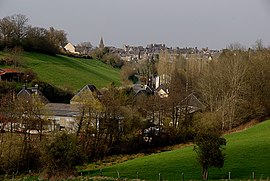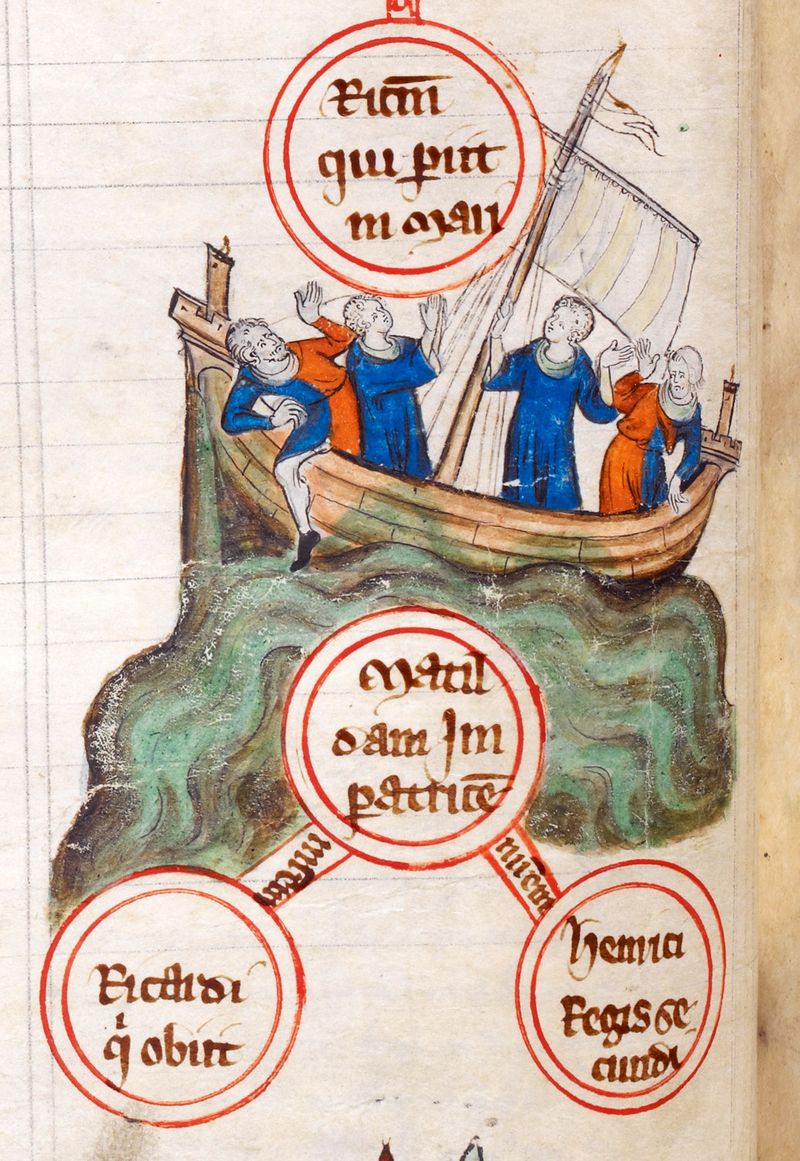Triumph and Tragedy 1106-1135
Triumph.
The Battle of Tinchbrai!
Henry wins the day!
Henry had bribed neighbouring princes to take his side and the tactic certainly paid off. It appears that the forces from Maine made a substantial contribution to his victory at Tinchbrai. Robert, the hero of Ascalon and who had been present at the capture of Jerusalem had fought his last battle. The eldest son of the Conqueror was captured and immediately imprisoned by kid brother Henry. Robert would remain incarcerated in Wales until his death in 1134. Robert had always been known for his energy and captivity did little to extinguish it. The former Duke, upbeat as always spent his comfortable, lengthy confinement learning Welsh and composing poetry. Robert was at least eighty when he died, an incredible feat at a time when most people died before the age of forty.
Henry had won a magnificent victory, he was now his father’s equal as Duke of Normandy and King of England.
Modern day Tinchbrai.

Robert Curthose’s tomb in Gloucester Cathedral.

GetIn his lifetime, Henry was known as the ‘Lion of Justice’. Royal justices were sent out into the shires to ensure that justice was being done in the shire courts. Those found guilty were treated very harshly indeed.
Tragedy.
Henry’s son, William the Atheling.

Although he had many illegitimate children, Henry had but one legitimate son who could succeed him. This was William, who from an early age had accompanied his father on his campaigns in France against the king of France. Contemporary chroniclers comment on William’s generosity and sweetness of nature and this is borne out by an incident in France.
Robert Curthose’s son, William Cilito was fighting against Henry on the side of the king of France in order to take back his father’s duchy. During the battle, Henry’s son, William Adelin lost his horse along with its valuable equipment. In a most chivalrous gesture William Cilito returned his cousin’s horse to him the very next day.
A figure that may have been Curthose’s son, William Cilito but a shortage of leg length is not in evidence.

Henry’s later years were troubling ones. Matilda had died in 1118 and in 1120 he received a blow from which he never really recovered.
It is a terrible shame that you took that trip
aboard the king’s swift White Ship
On November 25th 1120, William with a number of family members boarded the the King’s vessel, at Berfleur for the journey back to England. The crew had been drinking and the ship crashed into a rock in the bay and began to sink. William managed to climb aboard a small boat but when he heard his half-sister, Matilda Fitzroy, Countess of Perche calling from the ship, he turned the boat back in a valiant attempt to rescue her. However the boat was overturned by the waves and William was drowned.
A medieval illustration of the sinking of the White Ship.

Henry was inconsolable, he had not only lost a son but also his heir. This presented Henry with a crisis of succession, he had to have an heir to the throne. In 1121 he married Adeliza of Louvain who was some 35 years his junior in an attempt to conceive a male child. However the marriage was childless and Henry decided the only option, albeit a tricky one, was for him to appoint his daughter the recently widowed Matilda as his heir.
The king knew only too well that there had never been a Queen of England but resourceful and resolute as ever, Henry decided to try what he must have known was an almost impossible task. At Christmas 1126, the king summoned the leading barons to Westminster and called on them to pay homage to Matilda as his heir to the crown. Of course they gave their assurances that they would be loyal to Matilda but Henry undoubtedly saw the glow of avarice illuminating their smiling visages as they sampled the mulled wine. It could hardly have been a merry Christmas for the ageing monarch.
The King asked for his favourite fish dish!
‘A lamprey eel! A lamprey eel!
my favourite, but by God how ill it made me feel!’.
A lamprey is a type of eel.

Henry I died of food poisoning on December 1st 1135 and is buried in Reading Abbey. The political career of Henry, given the context of his place in the hereditary line was an undoubted success. This of course was due to a combination of both good fortune and his own astute calculation. However his death at a fairly ripe old age could hardly have been a happy one. A king was expected to leave a male heir and he left but a daughter, Matilda. An immensely shrewd man he undoubtedly foresaw the dreadful chaos that would befall England once he was dead and despite his most earnest efforts to prevent the calamity, it did.
T

Such, such were the joys!
Henry was the last of King Billy’s boys!